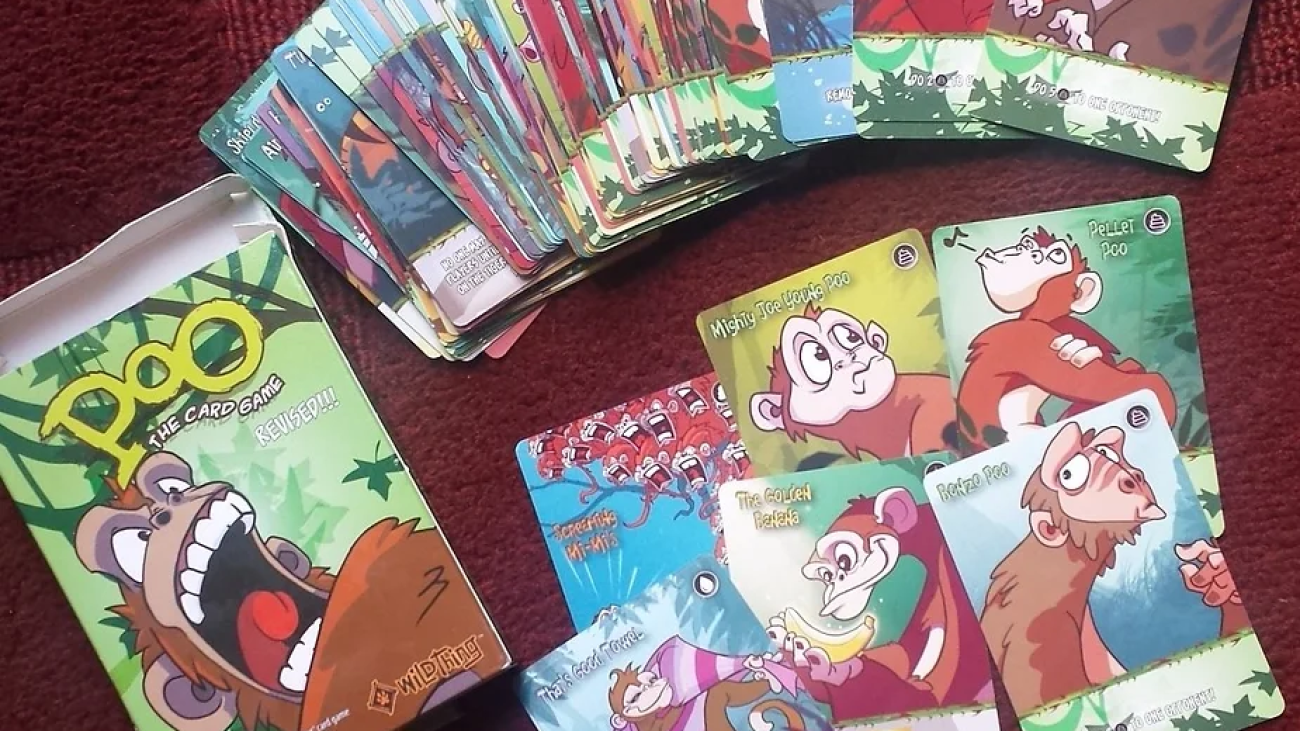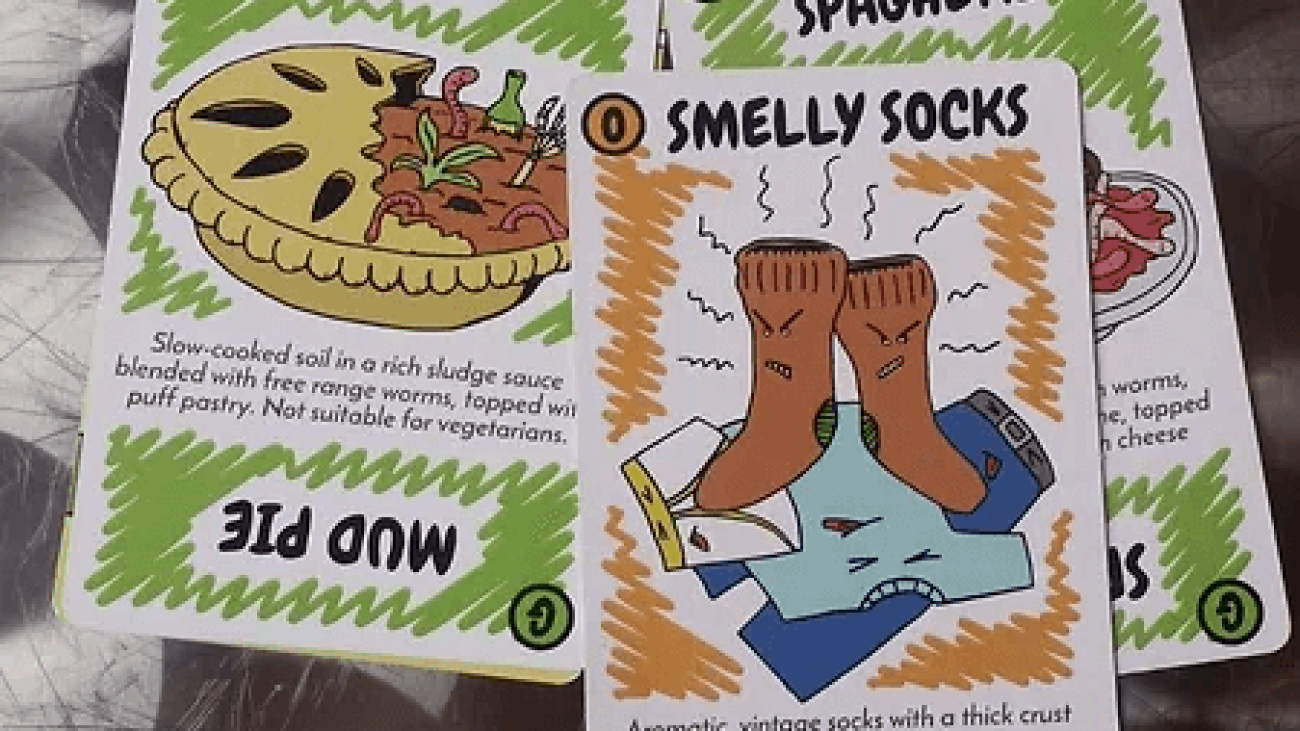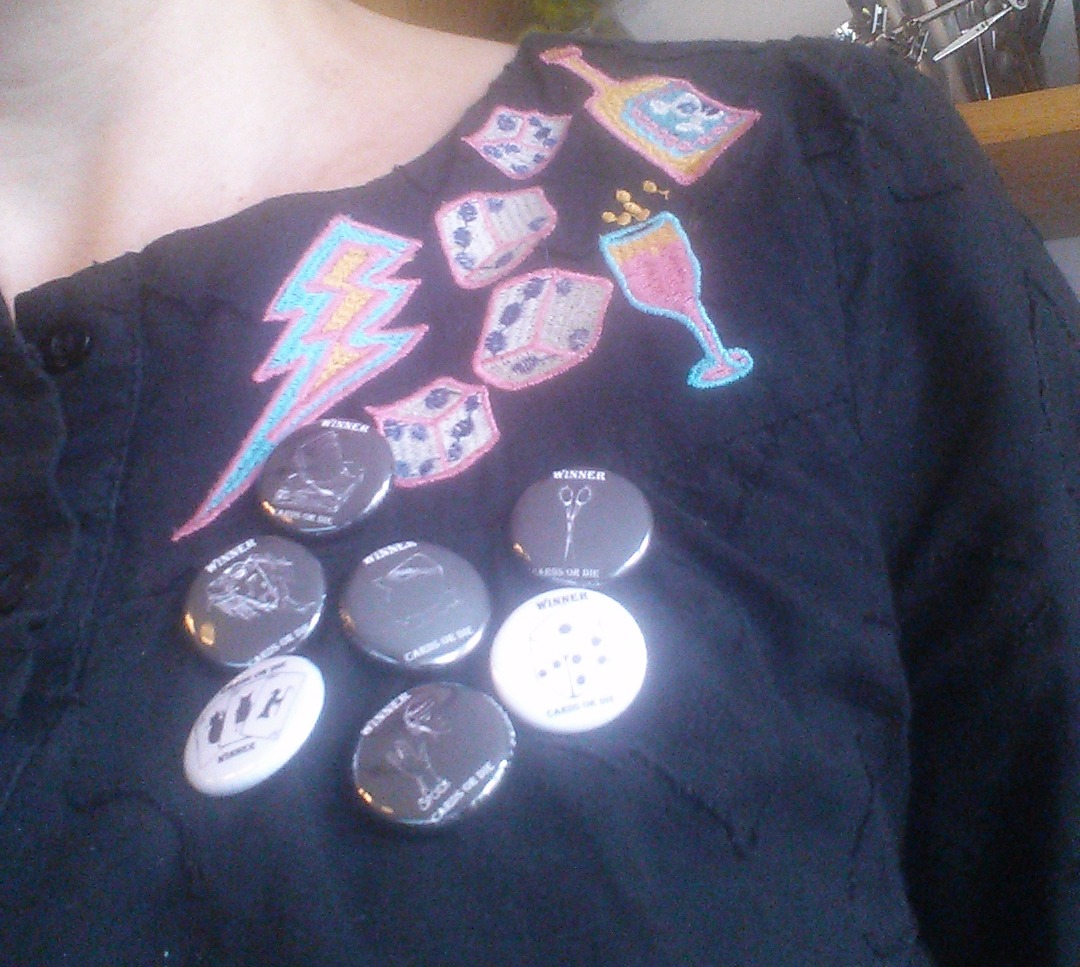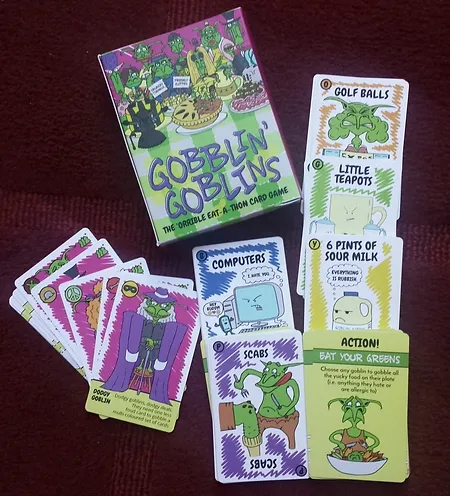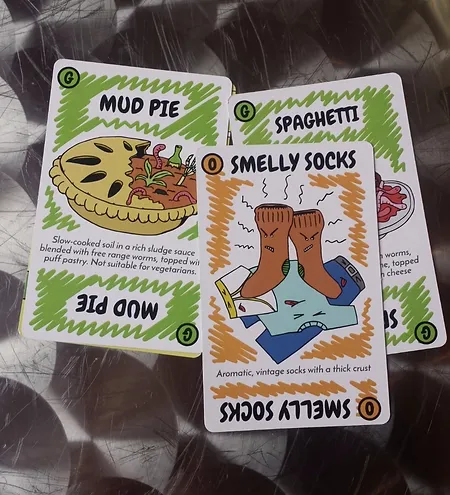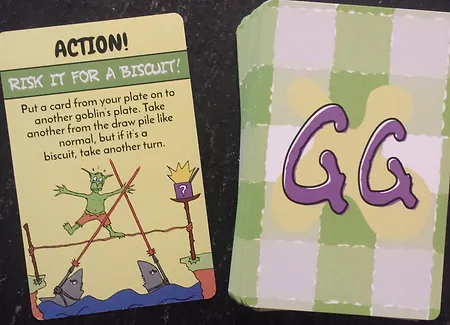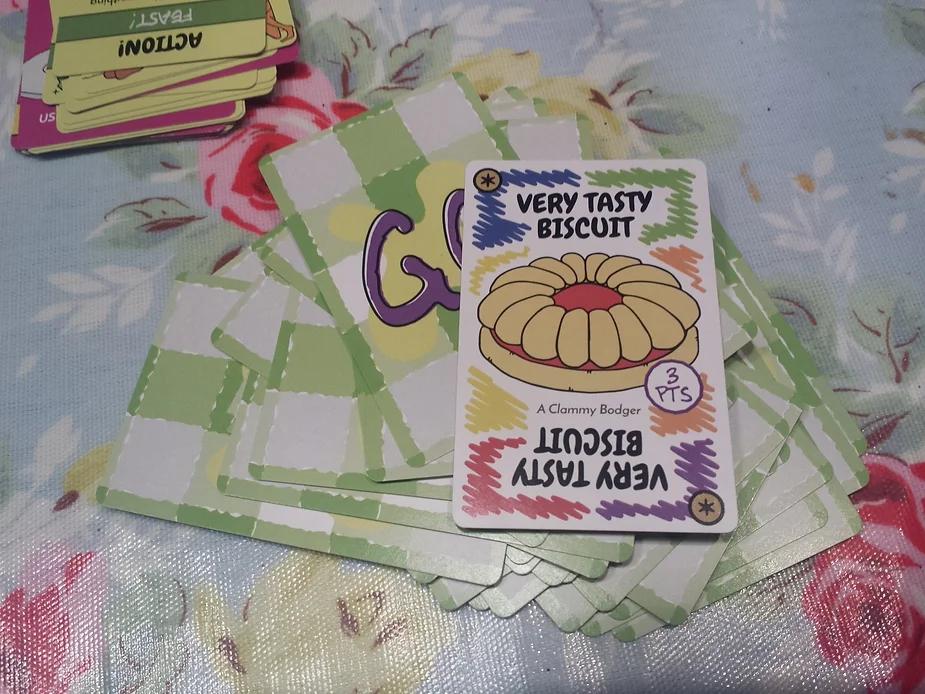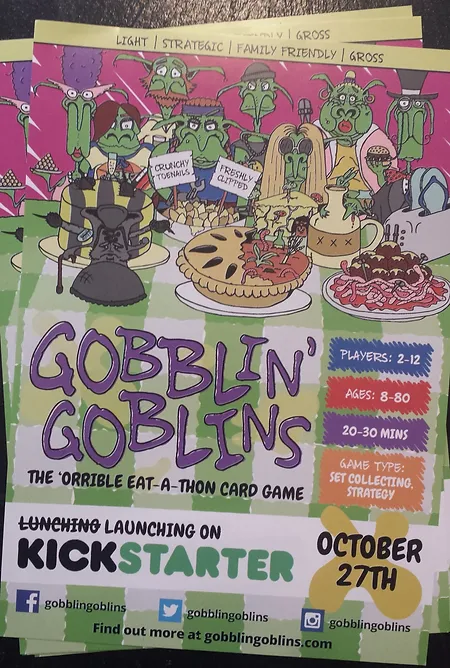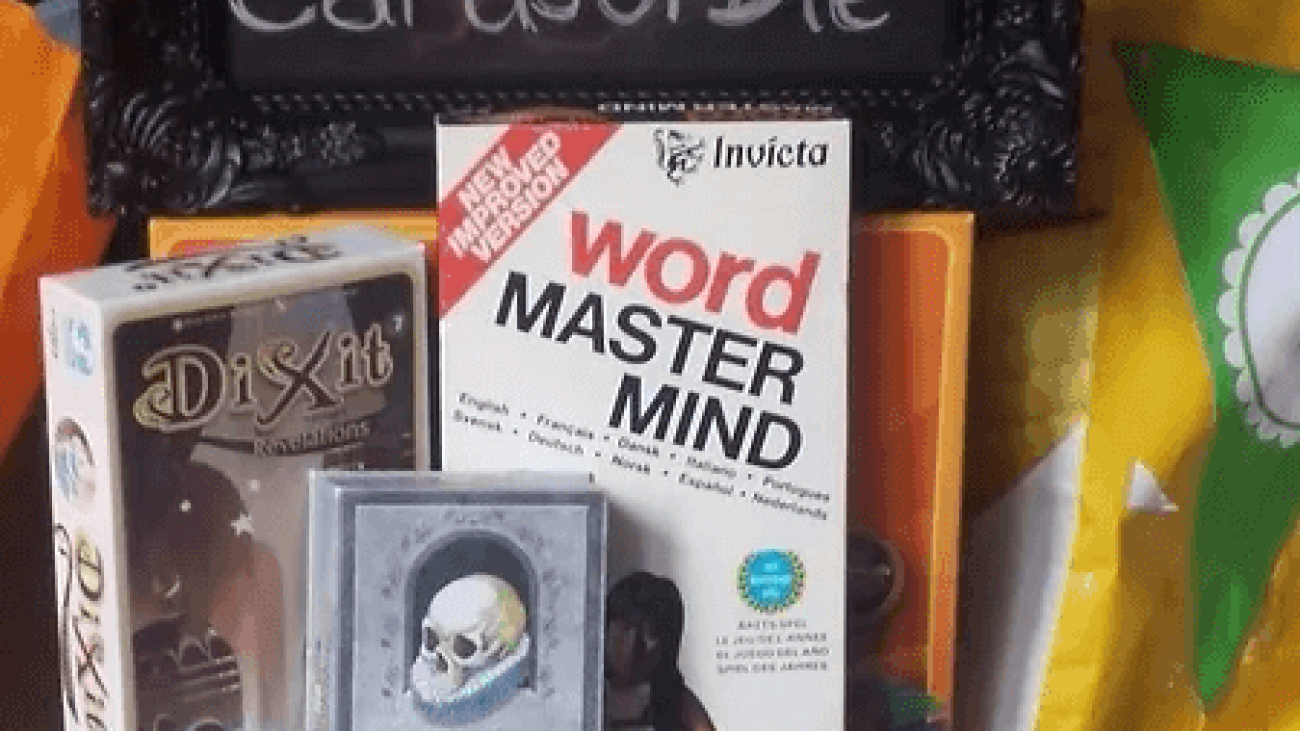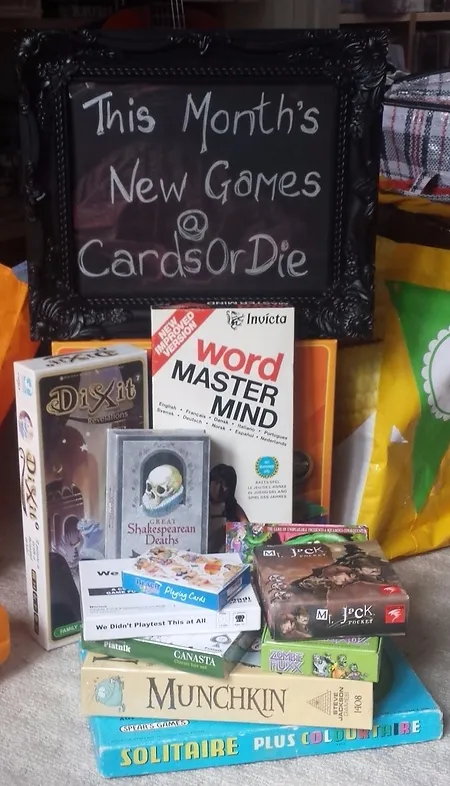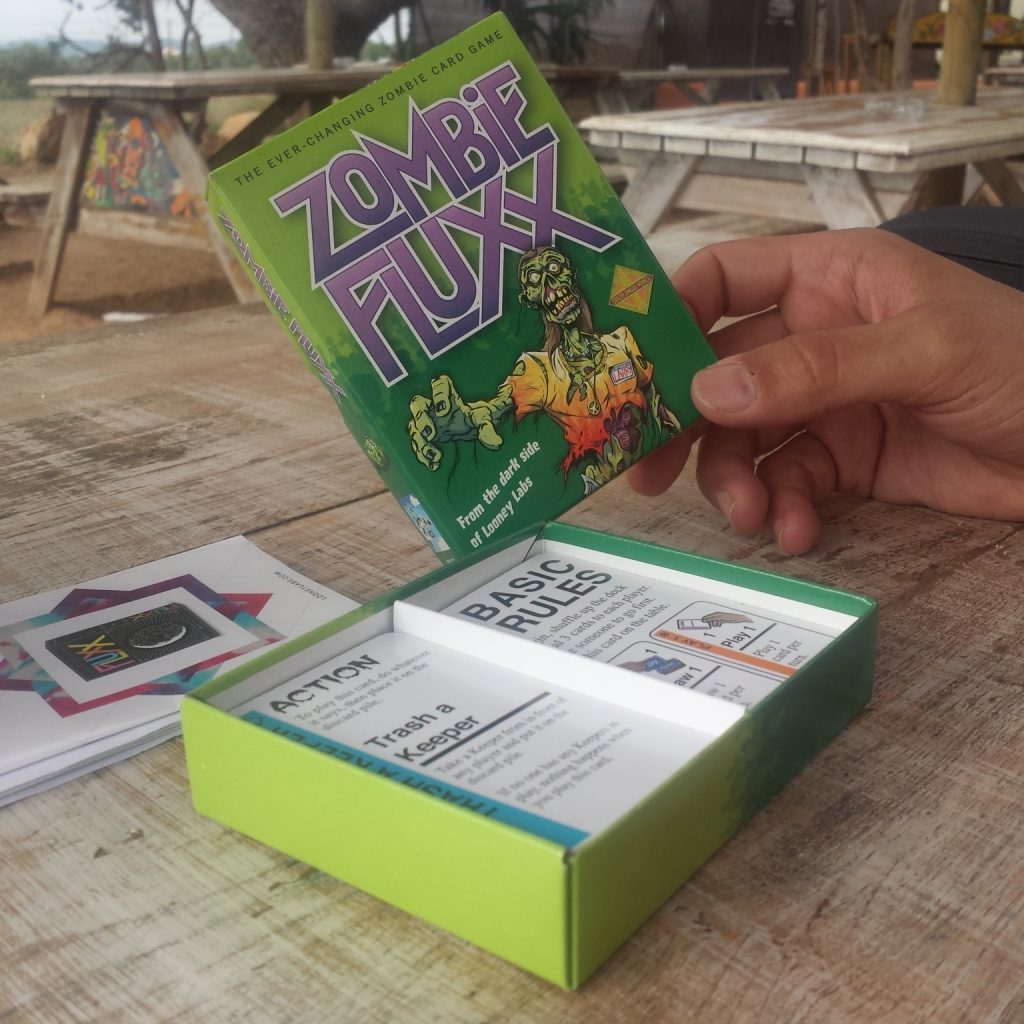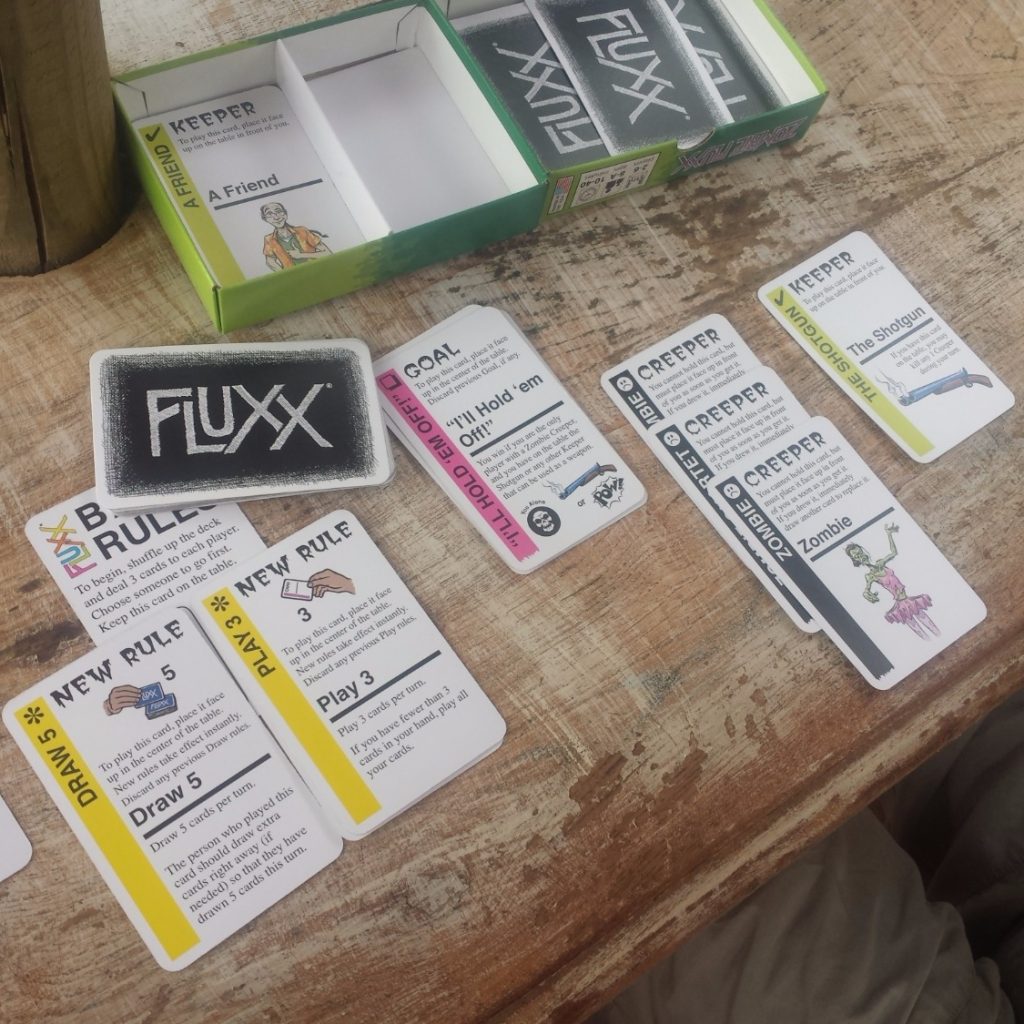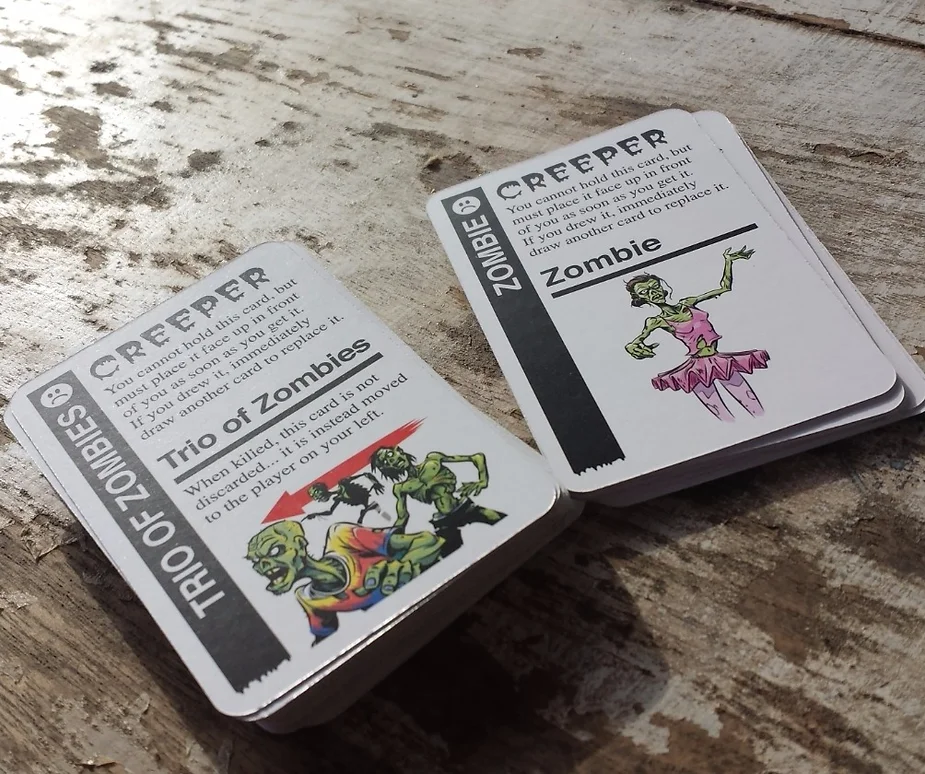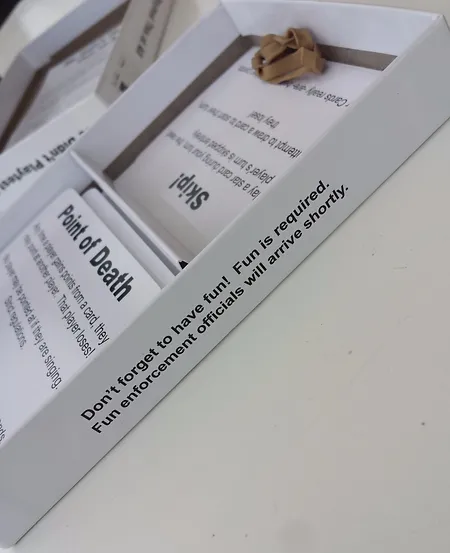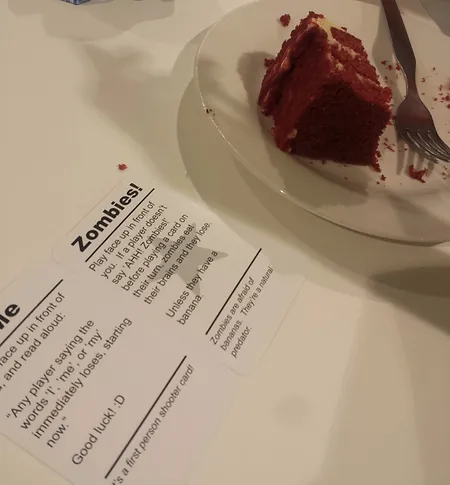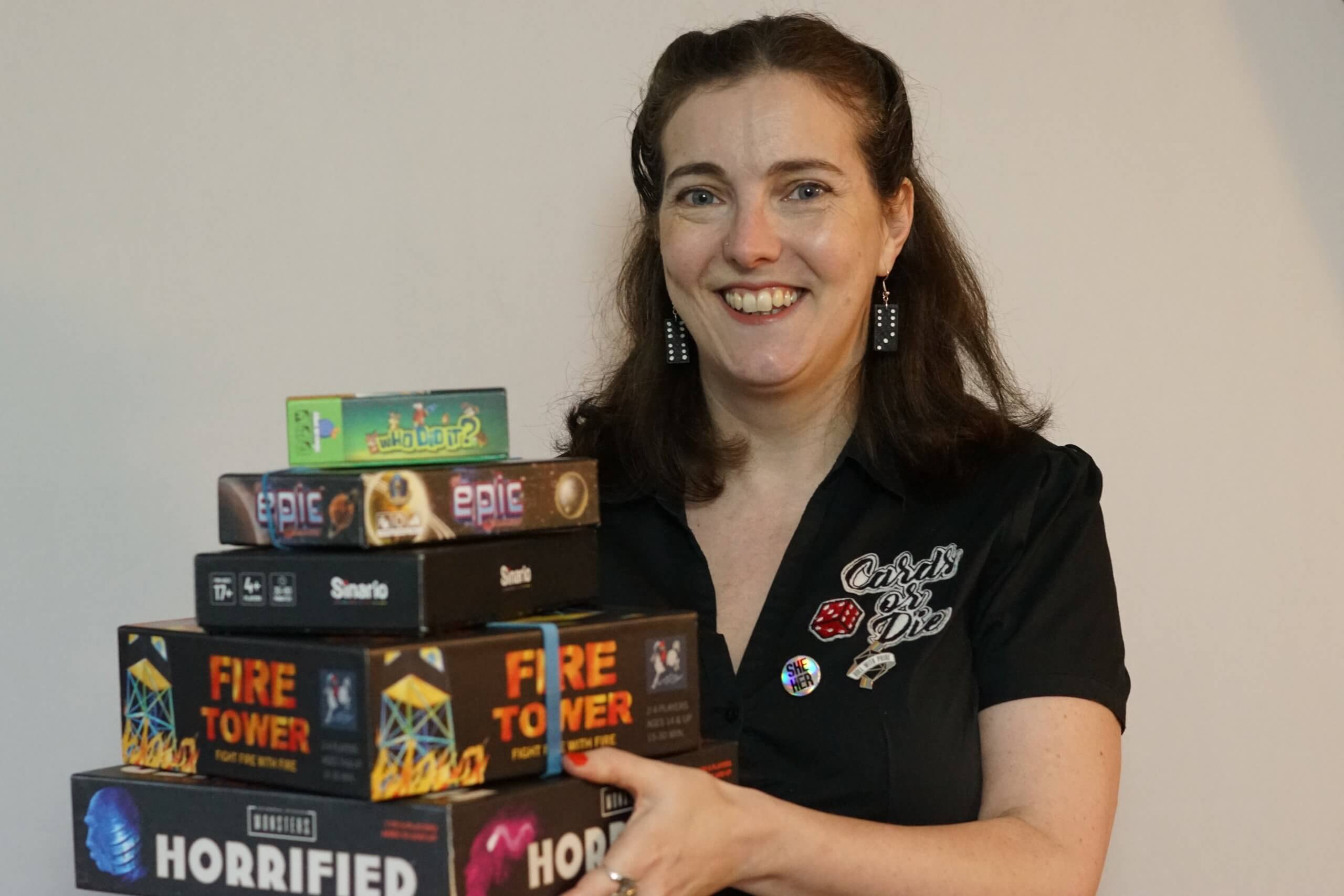Friends have been asking me ‘What games should I get my kids this Christmas?’ I know that the subtext here is a. what will keep my darlings gainfully occupied? b. what will I enjoy if I decide to play too? and c. what doesn’t require 2 hours of rule reading and painful adjudication?
Luckily for you, I’ve got the answer. In fact, 5 answers because that’s the sort of friend I am! The games I’ve chosen are quick to learn, will be out of the box more than they’re in it and are also portable, so you can take them to family get-togethers and all play or leave the kids to it. And once they’re safely tucked up in bed, regardless of how much festive spirit you imbibe you’ll be able to settle down to a sensible, grown up game of Poo.
My years as a teacher mean that I can not share these recommendations without going all geeky about the many benefits of learning through play: accidental learning is my favourite. Not only are games an excellent social tool, reinforcing ideas about turn taking, communicating your own ideas and listening to others, but also the games I’ve chosen encourage children to observe, match patterns and images, count and keep score and some games require quick thinking while some require reflective strategy (on as simple a level as you want). Basically what I’m saying is you can drink wine, knock stuff over, fling poo and send your darlings back to school/ nursery with a smug smile: they are so advanced.
So here are my top 5 Christmas Gifts for children…
1. Poo
2-8 players
5-15 minutes
Poo is a card game in which monkeys fling poo at each other and attempt to deflect poo on to others or clean some poo off themselves. Once you have been covered in a pile of 15 flying poos you are out and the last monkey standing wins.
Poo is an easy game. Start with 5 cards, play one, pick one up. The only age restriction is that there is simple reading to be done but this can be worked around by working in mixed age teams. Or, you could just be able to see a younger players cards – there is no strategy in this one so it doesn’t really matter if you know what someone has in their hand.
You may also want to buy some counters to keep track of scores – I got brown ones of course!
There is a Space version available too – it is currently in stock at your friendly local games shop: http://www.gamescrusade.co.uk/
Here is some regular, non-space poo:
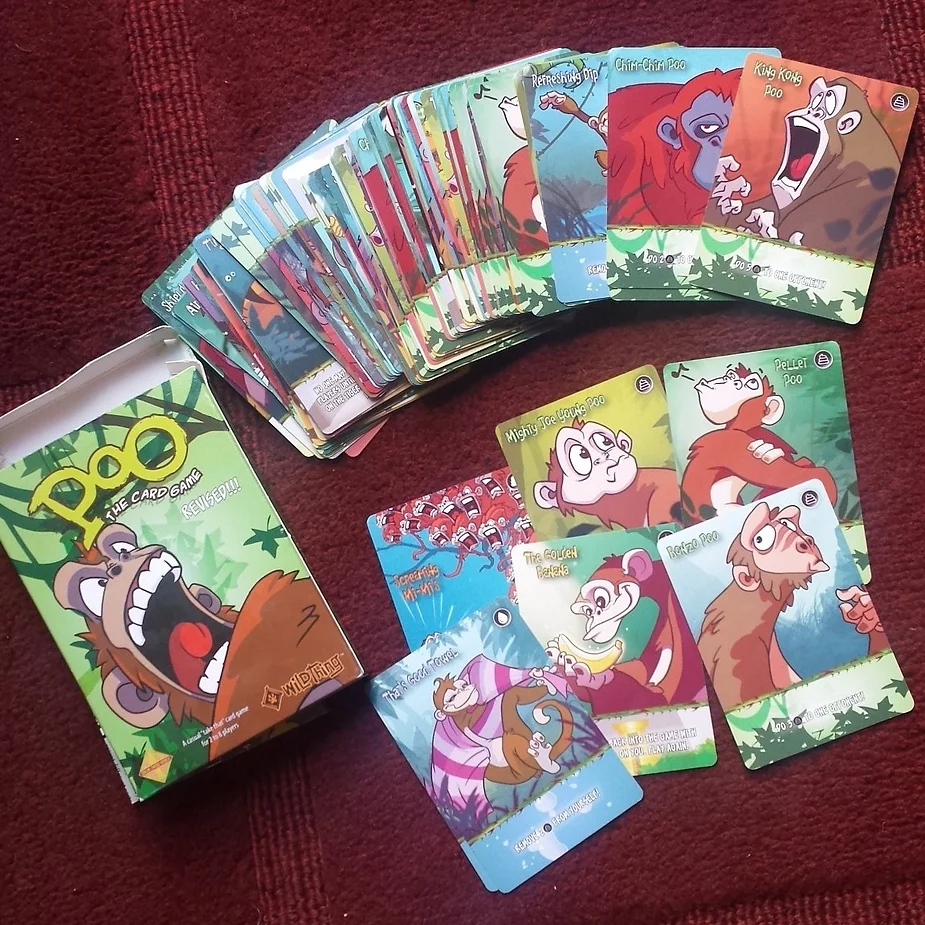
For first Wednesday games at The Abbey Inn, I treated us to some poo related prizes. This was a cheap party bag but worth adding to the game for a bit of extra fun:
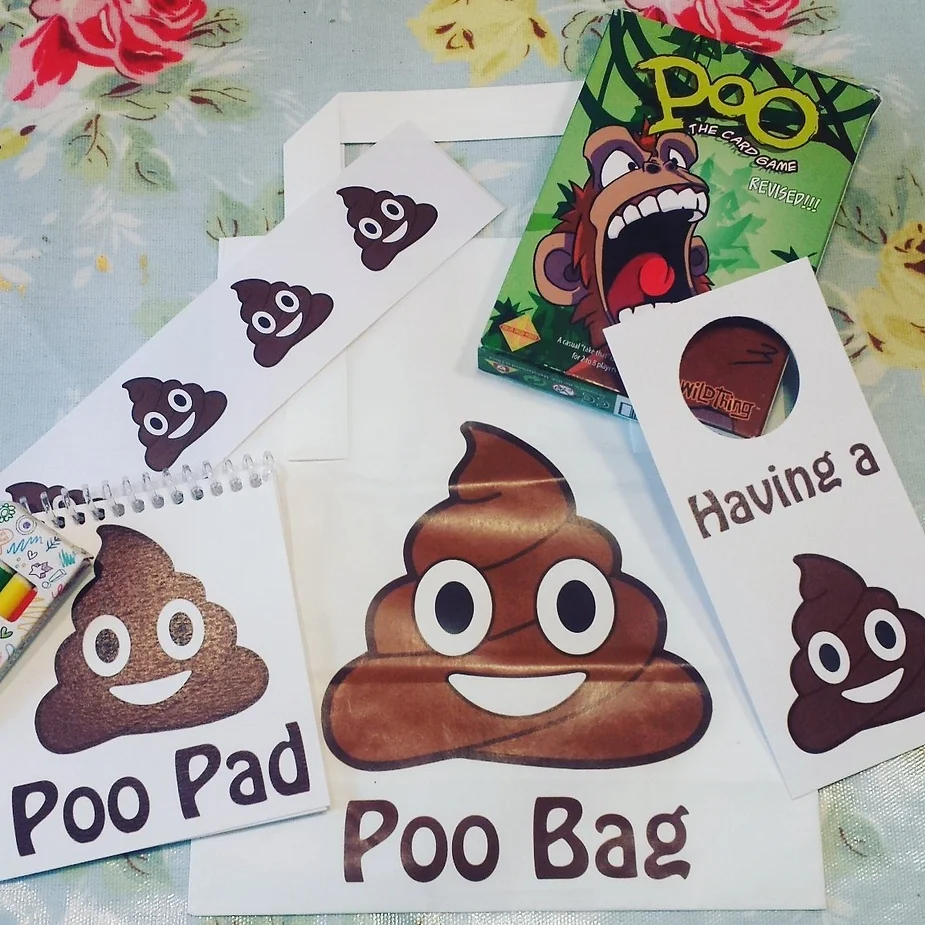
2. Kodama
2-5 players
40 minutes
This is a game which has a very simple premise and involves some strategy. No reading skills are required as you are matching images. It is, though, a very beautifully designed and illustrated game. In our house ages 9 to 71 have thoroughly enjoyed it but it is certainly suitable for younger (or older) ones too!
At the start of the game you choose a tree spirit, and then you grow your tree by adding branch cards that you choose. You score points for making a contiguous line of a certain feature over a number of adjoining cards. E.g. if you add fireflies to this starting trunk you score 1 point for each firefly on an adjoining branch.
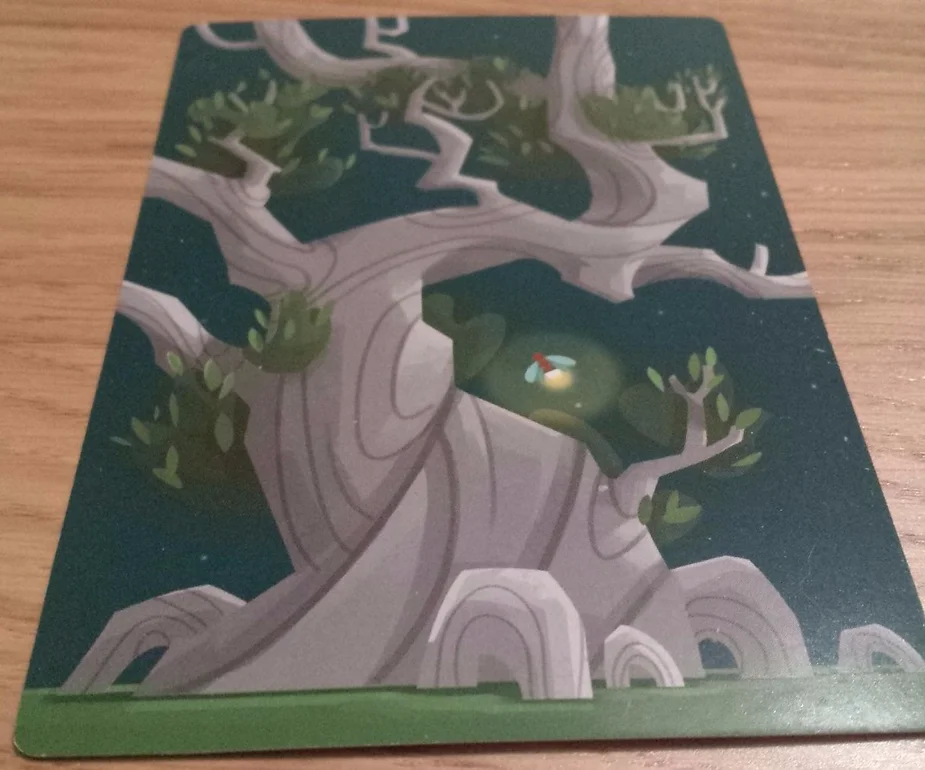
There are also season cards which set challenges; if you achieve the challenges then you score bonus points. For very small children it is easy to leave these out for the first couple of rounds and add them in later.
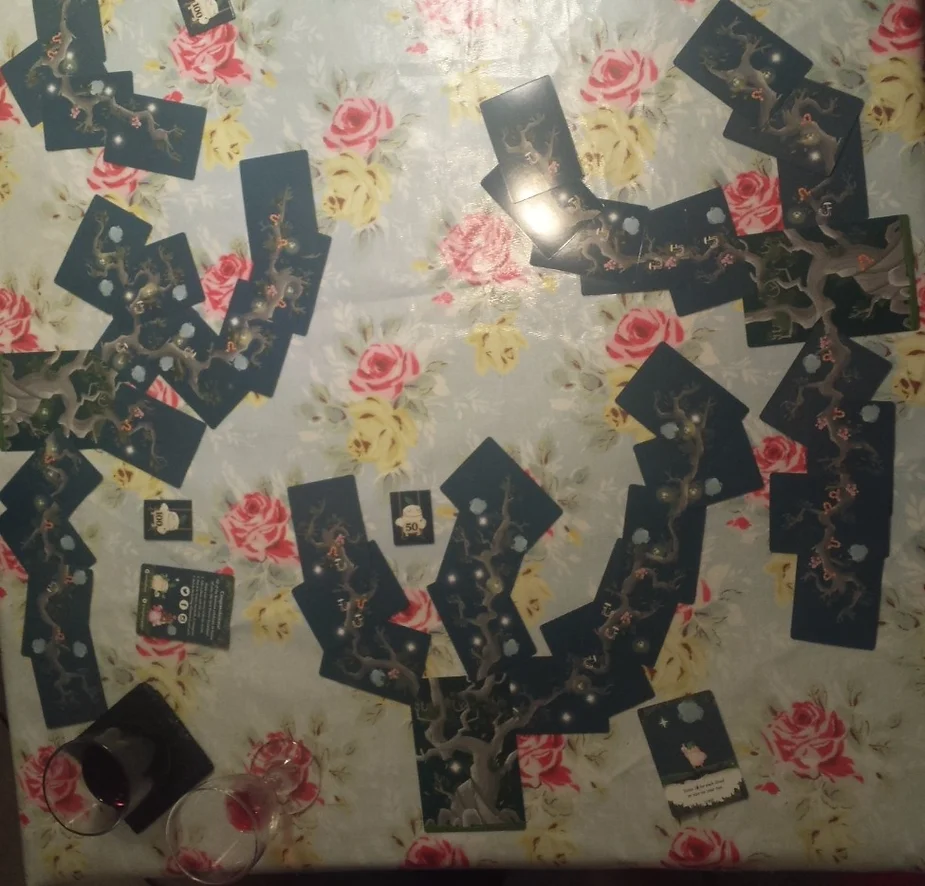
The finished trees after one of our games.
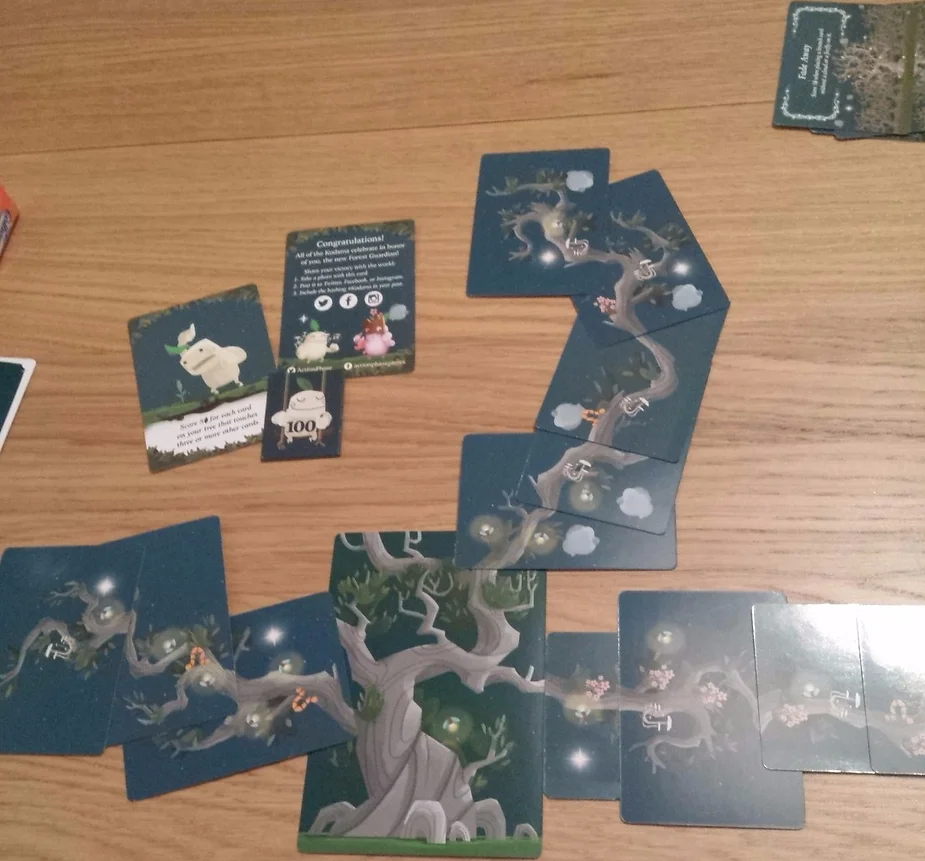
The only possible down side is that your child may demand a tree spirit as their next pet. I know I have.
3. Click Clack Lumberjack
Plays 2-7
5-10 minutes
Like Jenga – but there’s an axe. Try to knock off the bark without knocking down the tree. To play this children will need some dexterity and it involves turn taking. But, again – no reading. You can encourage them to keep track of their own score of +2 for every piece of bark knocked off, -5 for every section of trunk, and optional bonus points if they knock off the bark which hides the bug stickers.
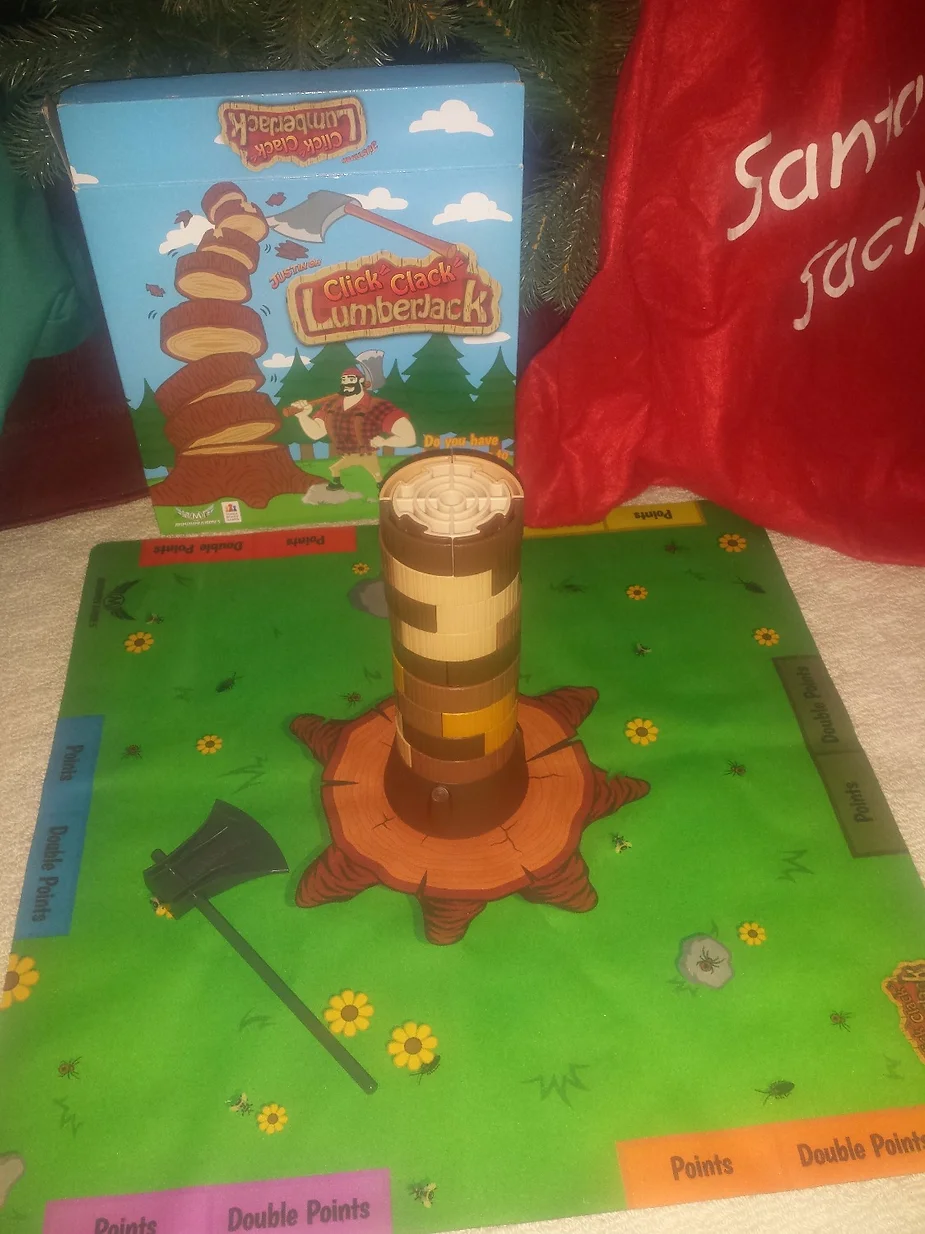
4. Carcassonne
Plays 2-5
30-45 minutes
There is a junior version of Carcassonne but to be honest I am not a great fan of games adapted for children, I’d rather differentiate myself. That way when they are older you’ve still got the game. A much thriftier investment!
Carcassonne is an incredibly popular and award winning game. It involves no reading, and there are lots of ways of reducing or increasing the strategy involved.
You lay tiles to create a landscape based on the medieval fortified town of Carcassonne. You need to match the tiles so that roads, fields, Abbeys or cities can be completed or added to. The way I’ve explained it to children is that the picture must ‘make sense’. Once you have laid a tile you can claim that territory by placing a meeple on it. Depending on where you place your meeple it can become a Knight (which may or may not say ‘Ni’), a farmer, a highwayman or a monk. Your meeple then earns points depending on the length of the road, or the size of the city, farm or Abbey. Players must play tiles carefully to maximise their score.
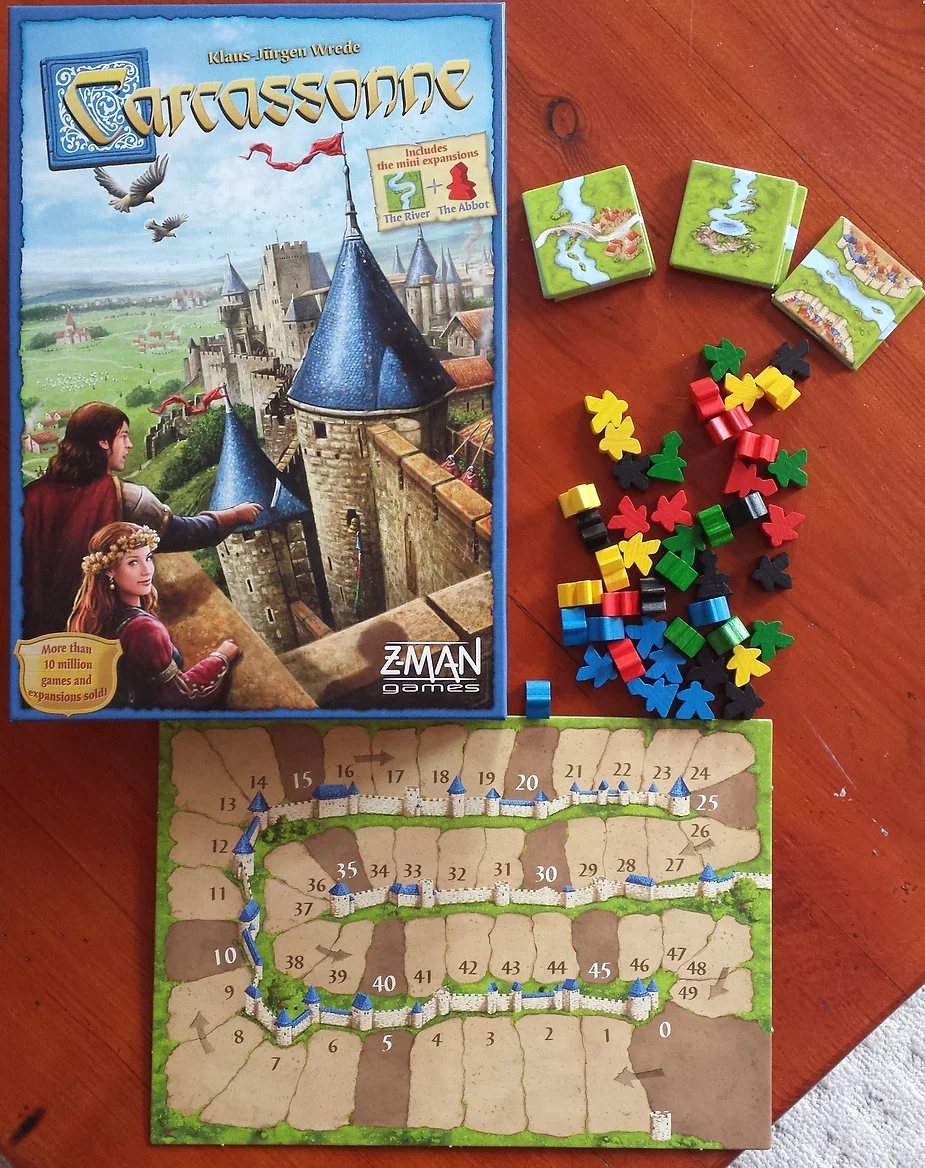
o help very small children to learn I would remove farmers and monks. Once they have mastered the basic principle of the game they can be re-introduced. Children are learning to create sequences and patterns as well as calculating and comparing possible scores. Again, they can do as much or as little of this as you want. This is definitely a good investment.
The box is not as portable as it is a little larger than the other 4 games it won’t go in a handbag, unlike poo!
5. Dobble
2-8 players
5 minutes
Dobble is a quick, fun and portable game. The tin of cards contains rules for 5 mini games. Turn over a card and if you are first to shout out the image which matches an image on your card you win the card. The person with the most cards wins. While the game is clearly the work of a mathematical genius – every single card has one image which matches with an image on another card – you don’t need to be a genius to play.
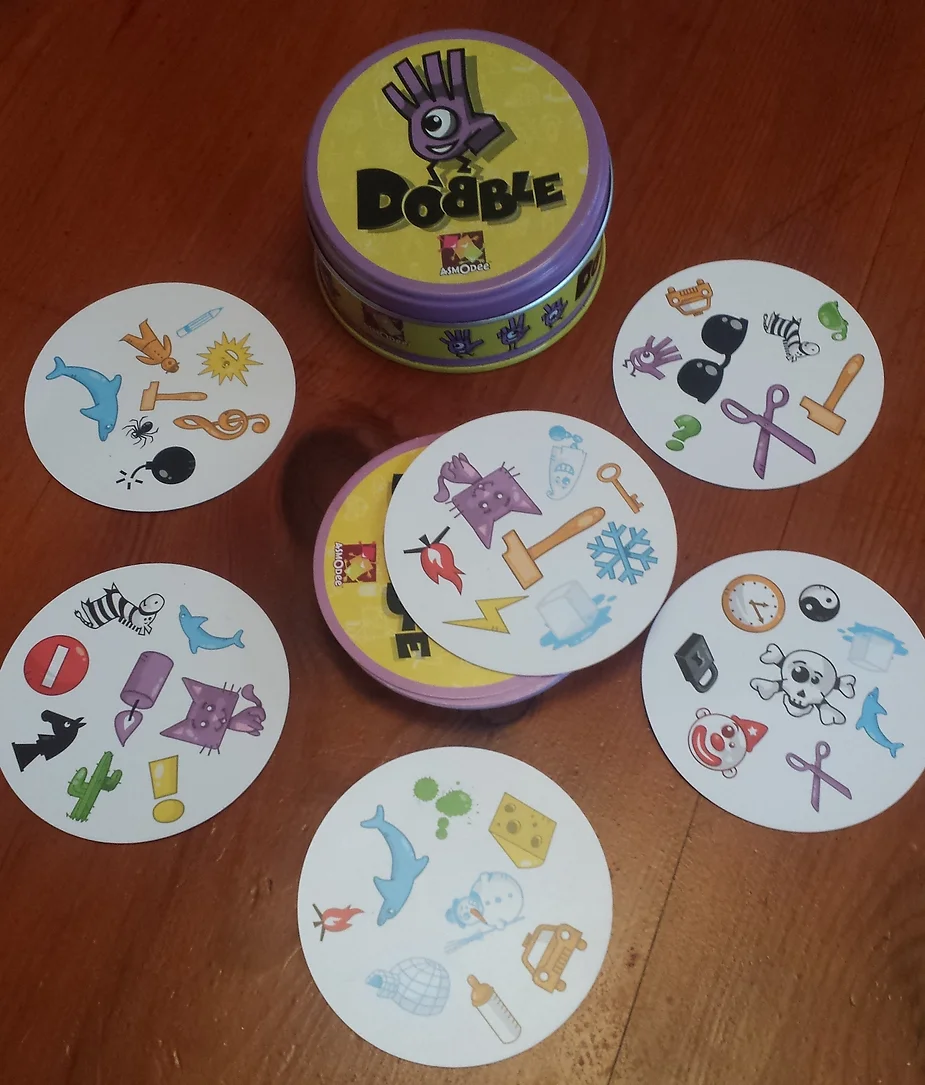
This game tests observational skills and encourages quick thinking and unlike snap, rather than testing the speed of your movement it requires you to verbalise your answer quickly.
It has been so successful that there are many variations available including a Star Wars version!

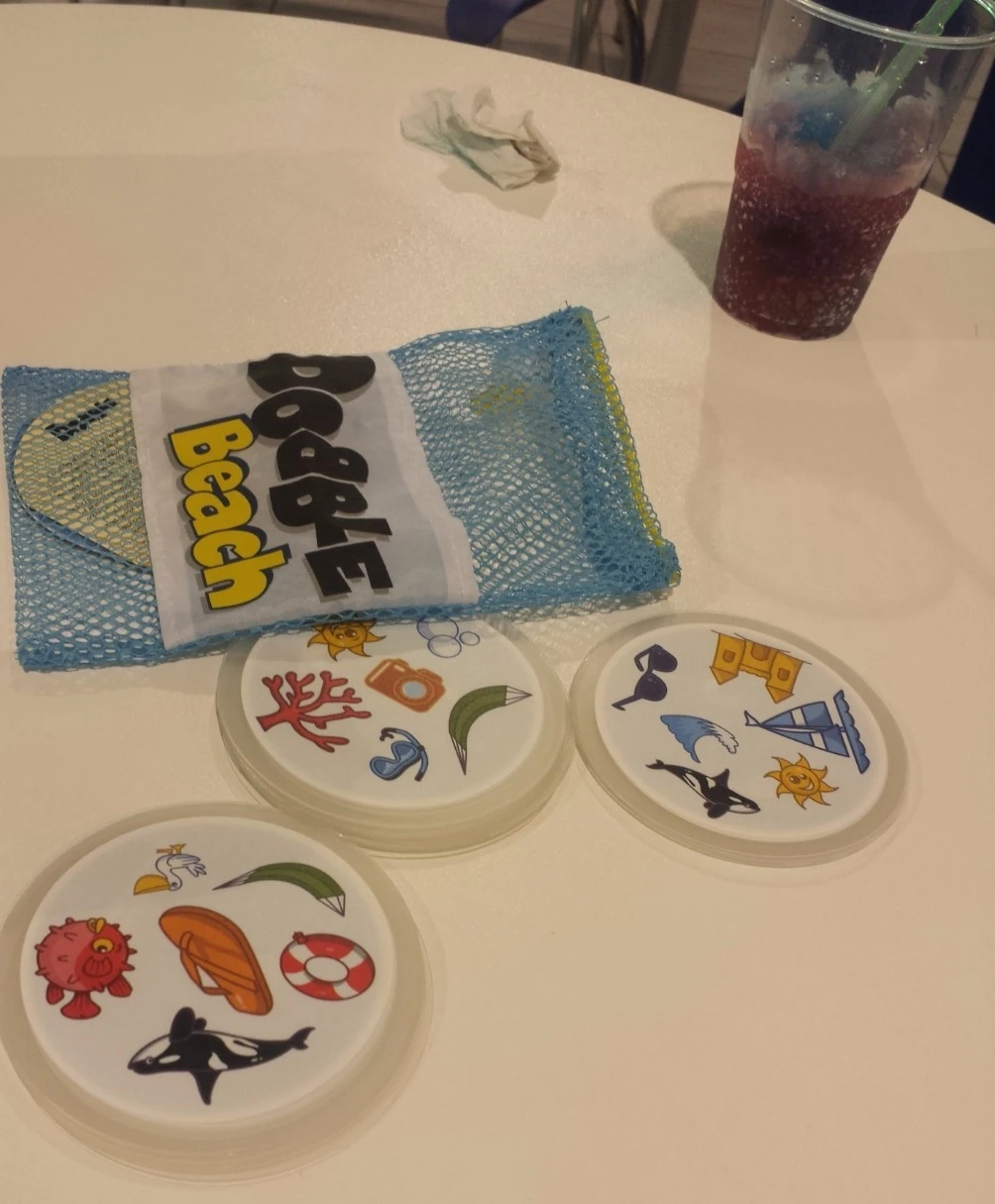
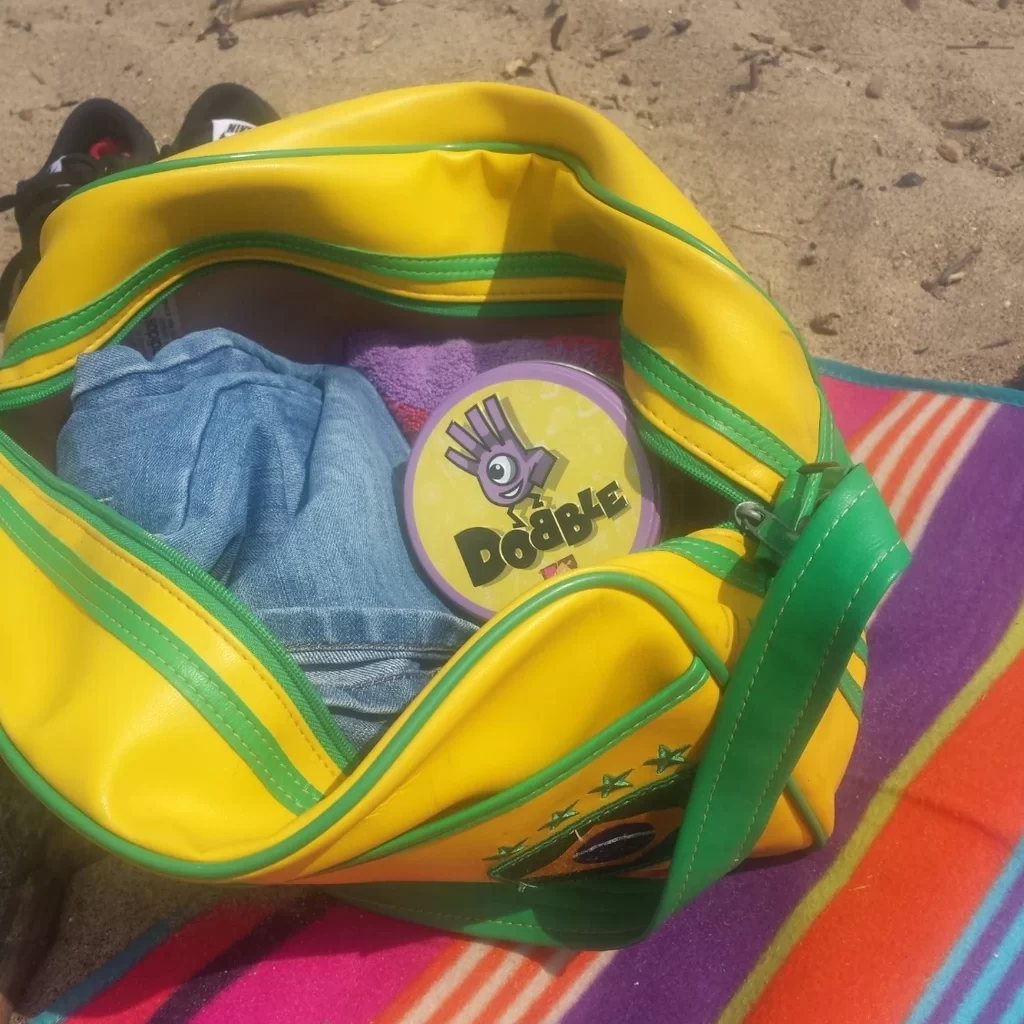
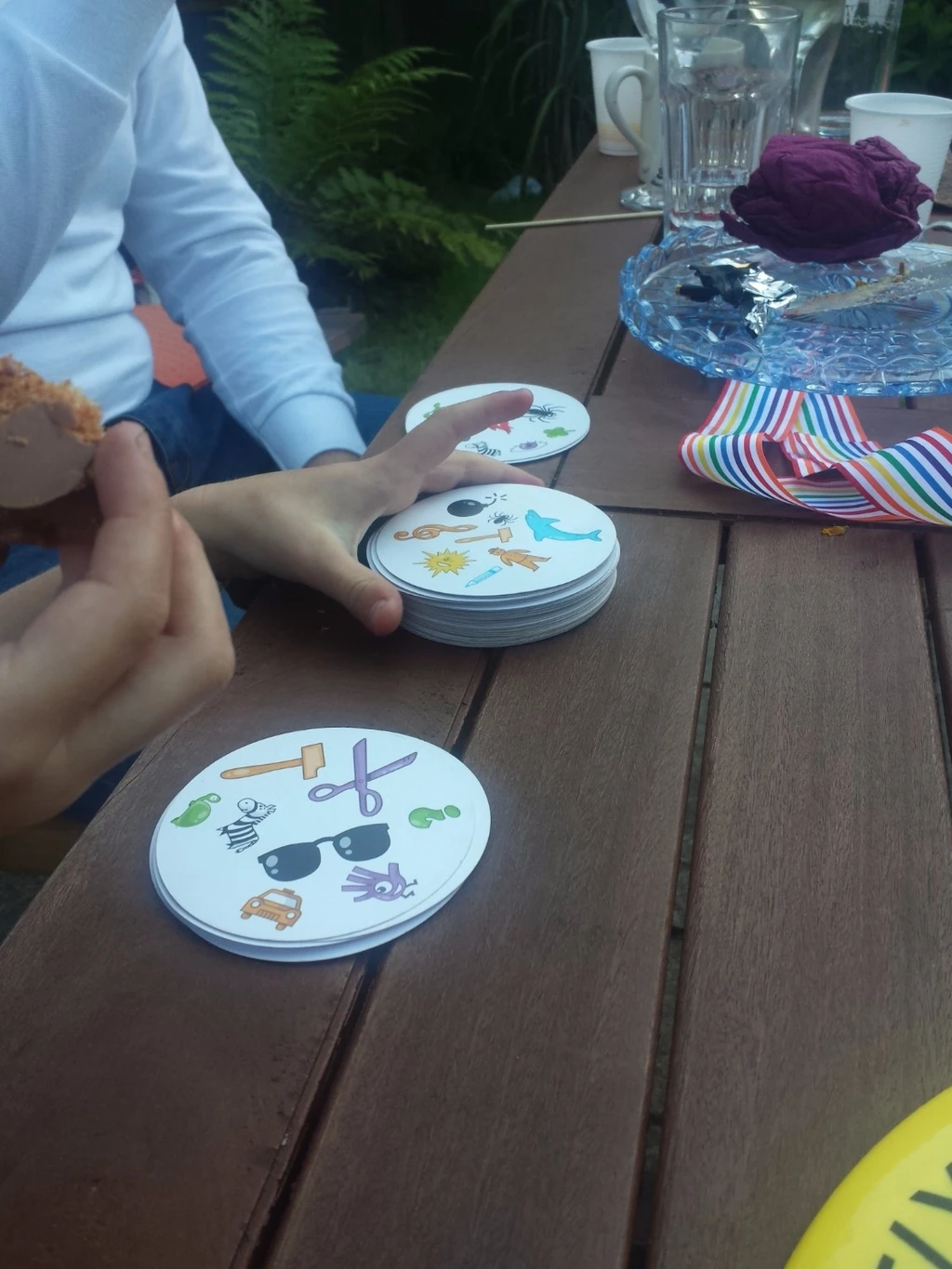
There are so many good games out there and this is just 5 that are a sure fire hit for any age. If you want any other, more specific recommendations or you want to share your family favourites please get in touch!
